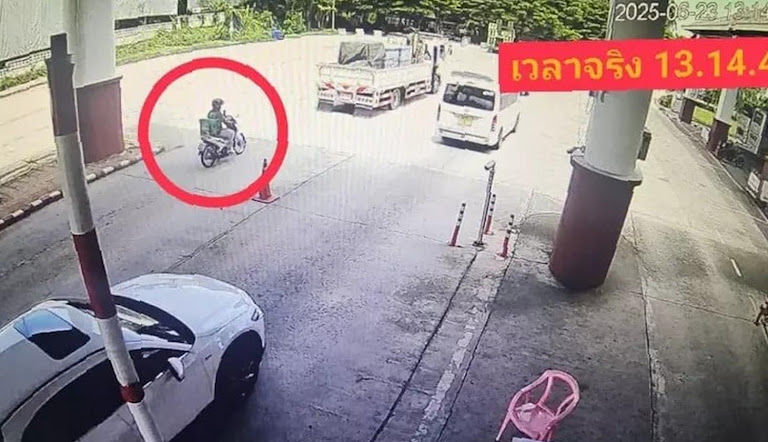Thailand Terror: Disinformation Outpaces Truth, Threatening to Ignite Further Chaos
Krabi bombings ignite disinformation storm, fueling ethnic tensions and demanding a new approach to rebuild public trust.

The speed with which disinformation spreads isn’t just faster than the speed of justice; it’s often faster than the speed of sensemaking. We see it in global elections, public health crises, and, as tragically illustrated by recent events in Thailand, in the wake of terrorist attacks. The arrest of five suspects in connection with the bombings that shook Krabi, Phang Nga, and Phuket, reported by The Phuket News, reveals not only the immediate challenge of apprehending perpetrators but the deeper chasm between the event and its meaning in a fractured information landscape. It exposes how, in the rush to explain, we often create more confusion.
The authorities' plea for the public to avoid spreading “unverified or misleading information” isn’t simply damage control; it’s a tacit admission that the state is losing control of the narrative. It’s not just about correcting factual inaccuracies; it’s about preemptively managing narratives that could exacerbate existing tensions, fuel further violence, or undermine public trust in institutions. This is because online spaces have fundamentally altered the speed and scale at which these narratives can propagate, often outpacing the ability of authorities to effectively counter them — and, more critically, shifting the very ground upon which trust is built.
“continue to encourage public cooperation to prevent the spread of fake news and to support efforts to maintain peace and mutual understanding, particularly in Thailand’s southern border provinces.”
This incident — the coordinated attacks, the hunt for suspects, the government’s plea — must be understood within the context of Thailand’s long and troubled history with ethno-nationalism and separatist movements in the south. But that history is itself mediated and manipulated. The use of a vehicle originating from Pattani province, a region historically plagued by insurgency, points to a possible link between these attacks and the decades-long conflict simmering along the Thai-Malaysian border. This connection cannot be immediately confirmed, yet it can lead to heightened anti-muslim feelings as well. Crucially, these anxieties are then amplified and weaponized by actors both within and outside Thailand, who see advantage in further destabilizing the region, obscuring the actual dynamics of power and grievance in a fog of digital propaganda.
The situation in Southern Thailand is far from isolated. It echoes the challenges faced by governments around the world struggling to combat disinformation campaigns designed to sow division and distrust. As scholar Shanto Iyengar, professor of communication and political science at Stanford University, points out, “Selective exposure and partisan media are amplifying polarization and reducing common ground,” the effects of which inevitably spill over into real-world consequences. It’s not just that people disagree; it’s that they disagree on what is.
Beyond the immediate legal proceedings and security operations, a more profound question looms: how do we build resilience against the weaponization of information? The answer, as scholars have noted for years, is multifaceted. It involves strengthening media literacy education, promoting critical thinking skills, investing in public service journalism, and holding social media platforms accountable for the content hosted on their sites. But even more fundamentally, it requires a reimagining of the public sphere itself. This isn’t just about better fact-checking; it’s about fostering environments where trust can be rebuilt, where nuance is valued, and where the incentives don’t favor outrage and amplification of the extreme.
The situation is not hopeless. A 2023 report by the Brookings Institution argued that a more collaborative relationship is needed between government, civil society, and private actors. It’s imperative that a “whole of society” approach is adopted if Thailand, and nations facing similar challenges, are to create a more informed, resilient, and unified public sphere. But the “whole of society” approach is itself vulnerable to manipulation. What happens when actors exploit this very framework to inject their own agendas, further blurring the lines between truth and falsehood? The hunt for the bombers and the fight for the truth are linked, but the latter is a far more complex and treacherous landscape. We must acknowledge that even the most well-intentioned efforts can be co-opted, and that eternal vigilance is the price not just of liberty, but of a shared reality.









